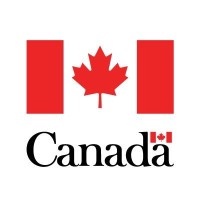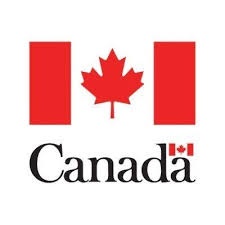
Innovative Solutions Canada — Inclusive industrial protective headwear
At a glance
- Maximum amount : 300,000 $
- Open Date : July 10, 2024
- Closing date : August 21, 2024
- Utilities
- Construction
- Manufacturing
- Canada
- For-profit business
- All revenue ranges
- 499 employees maximum
- Canadians
Overview
The Innovative Solutions Canada — Inclusive Industrial Protective Headwear program aims to design headwear that accommodates various head coverings, with a maximum funding of $1,000,000 for successful projects. Eligible activities include developing solutions that address safety standards for head protection in various industries.
Activities funded
This funding opportunity is designed for small Canadian businesses to develop innovative industrial protective headwear solutions that accommodate religious, cultural, medical, and/or gender identity head coverings. The aim is to address safety, inclusivity, and compliance with Canadian Standards Association requirements in the workplace.
- Design and testing of industrial protective headwear that accommodates various head coverings such as turbans, hijabs, and kippahs while meeting Canadian safety standards.
- Innovation in materials and technology to develop headwear that is both protective and adjustable to different volumes and shapes of head coverings.
- Research and development activities to achieve proof of concept and ensure feasibility of the proposed headwear solutions.
- Collaboration with the Public Services and Procurement Canada and the CSA Group to refine specifications and testing protocols.
- Projects that integrate sustainability by using eco-friendly materials and processes in the production of protective headwear.
Eligibility
Solution proposals can only be submitted by a small business that meets all of the following criteria:
- For profit
- Incorporated in Canada (federally or provincially)
- 499 or fewer full-time equivalent (FTE) employees
- Research and development activities that take place in Canada
- 50% or more of its annual wages, salaries, and fees are currently paid to employees and contractors who spend the majority of their time working in Canada
- 50% or more of its FTE employees have Canada as their ordinary place of work
- 50% or more of its senior executives (Vice President and above) have Canada as their principal residence
Who is eligible?
For the Public Services and Procurement Canada Challenge, proposals can be submitted exclusively by small businesses in Canada that meet specific criteria.
- Must be a for-profit organization.
- Must be incorporated in Canada, whether federally or provincially.
- Must have 499 or fewer full-time equivalent (FTE) employees, taking into account affiliated businesses both within and outside Canada.
- Must conduct research and development activities within Canada.
- Must ensure that 50% or more of its annual wages, salaries, and fees are paid to employees and contractors working primarily in Canada.
- Must have 50% or more of its FTE employees whose ordinary place of work is in Canada.
- Must have 50% or more of its senior executives (Vice President and above) with Canada as their principal residence.
Eligible expenses
This grant supports the development of innovative industrial protective headwear solutions that can accommodate various head coverings while meeting safety standards. These projects focus on addressing systemic barriers, ensuring compliance with Canadian safety regulations, and supporting diverse workforce needs.
- Design and production of industrial protective headwear accommodating religious and cultural head coverings.
- Research and development activities aimed at testing the feasibility of new protective headwear designs.
- Collaboration with the Canadian Standards Association to ensure solutions meet CSA Z94.1 standards or inform new specifications.
- Development of sustainable, eco-friendly materials and processes for protective headwear.
Eligible geographic areas
This grant is available to companies incorporated in Canada, with a specific focus on ensuring that operations are primarily conducted within the country. Eligible businesses must meet certain geographical and operational criteria to be considered for funding.
- Businesses incorporated in Canada, either federally or provincially.
- Companies with at least 50% of their workforce having Canada as their ordinary place of work.
- Organizations where 50% or more of senior executives have Canada as their principal residence.
Selection criteria
The evaluation and selection of projects for this grant are based on specific criteria with allocated point scores to ensure alignment with the grant’s objectives.
- Question 1a: Scope - Pass/Fail.
- Question 2: Current Technology Readiness Level (TRL) - Pass/Fail.
- Question 3a: Innovation - Pass/Fail.
- Question 3b: Advance on State of the Art - 0 to 20 points.
- Question 1b: Scope (Additional Outcomes) - 0 to 10 points.
- Question 4: Phase 1 Science and Technology (S&T) Risks - 0 to 10 points.
- Question 5: Phase 1 Project Risks - 0 to 10 points.
- Question 6: Phase 1 Project Plan - 0 to 20 points.
- Question 7: Phase 1 Implementation Team - 0 to 20 points.
- Question 8: Inclusivity - 0 to 20 points.
- Question 9: Phase 1 Financial Controls, Tracking and Oversight - 0 to 10 points.
- Question 10: Phase 2 Overview - 0 to 10 points.
How to apply
Preliminary Registration
- Create an account on the funding body's portal at CanadaBuys.
- Register your interest and login to access the submission form.
Review Guidelines and Criteria
- Carefully read through the official solicitation documents and tender notice for specific details.
- Understand the mandatory and point-rated criteria and ensure your proposal meets them.
Prepare Proposal
- Develop a comprehensive proposal addressing the challenge, including scientific and technological basis, innovation, and expected outcomes.
- Document your current Technology Readiness Level and R&D activities.
- Address the project's plan for Phase 1, including team composition and financial tracking.
- Consider inclusivity measures and describe them in the application.
Submit Application
- Log in to the CanadaBuys portal and complete the Challenge Stream Submission Form.
- Attach all required documents and proposals meticulously.
- Submit the application before the closing date, August 21, 2024, 14:00 Eastern Time.
Confirmation of Submission
- Receive a confirmation email with an application reference number.
- Ensure you keep the confirmation for your records.
Additional information
This grant offers an inclusive innovation opportunity in the design of industrial protective headwear, targeting systemic barriers faced by workers who wear head coverings. PSPC supports a diverse and inclusive workplace, aiming to enhance safety and accessibility for all workers through this initiative.
- Phase 1 contracts have a maximum funding of $300,000 CAD and last up to 6 months.
- Phase 2 contracts have a maximum funding of $1,000,000 CAD and may extend up to 24 months.
- Multiple contracts may result from this challenge, with a focus on safety and inclusivity.
- The challenge requires candidates to adhere to Canadian Standards Association (CSA) standards or provide valid alternatives.
- No travel is anticipated for Phase 1; all meetings will be conducted remotely.
Contacts
Frequently Asked Questions about the Innovative Solutions Canada — Inclusive industrial protective headwear Program
What is the Innovative Solutions Canada — Inclusive industrial protective headwear?
How much funding can be received?
What is the deadline to apply?
Who is eligible for the Innovative Solutions Canada — Inclusive industrial protective headwear program?
What expenses are eligible under Innovative Solutions Canada — Inclusive industrial protective headwear?
Who can I contact for more information about the Innovative Solutions Canada — Inclusive industrial protective headwear?
Where is the Innovative Solutions Canada — Inclusive industrial protective headwear available?
More programs like this

Industrial Research Assistance Program (IRAP) – AI Assist
National Research Council Canada (NRC)
Clean Technology Manufacturing (CTM) Investment Tax Credit (ITC)
Canada Revenue Agency (CRA)
Strategic Innovation Fund (SIF)
Innovation, Science and Economic Development Canada (ISED)
AI-Powered Supply Chains Cluster (Scale AI)
Global Innovation Clusters (GIC)
Green Industrial Facilities and Manufacturing Program (GIFMP) — Industrial Facility Track
Natural Resources Canada (NRCan)
Canada Public Transit Fund
Housing, Infrastructure and Communities Canada (HICC)
NRC IRAP – Support for clean technology
National Research Council Canada (NRC)
ISED — Artificial intelligence (AI)
Innovation, Science and Economic Development Canada (ISED)
Global Innovation Clusters
Innovation Canada